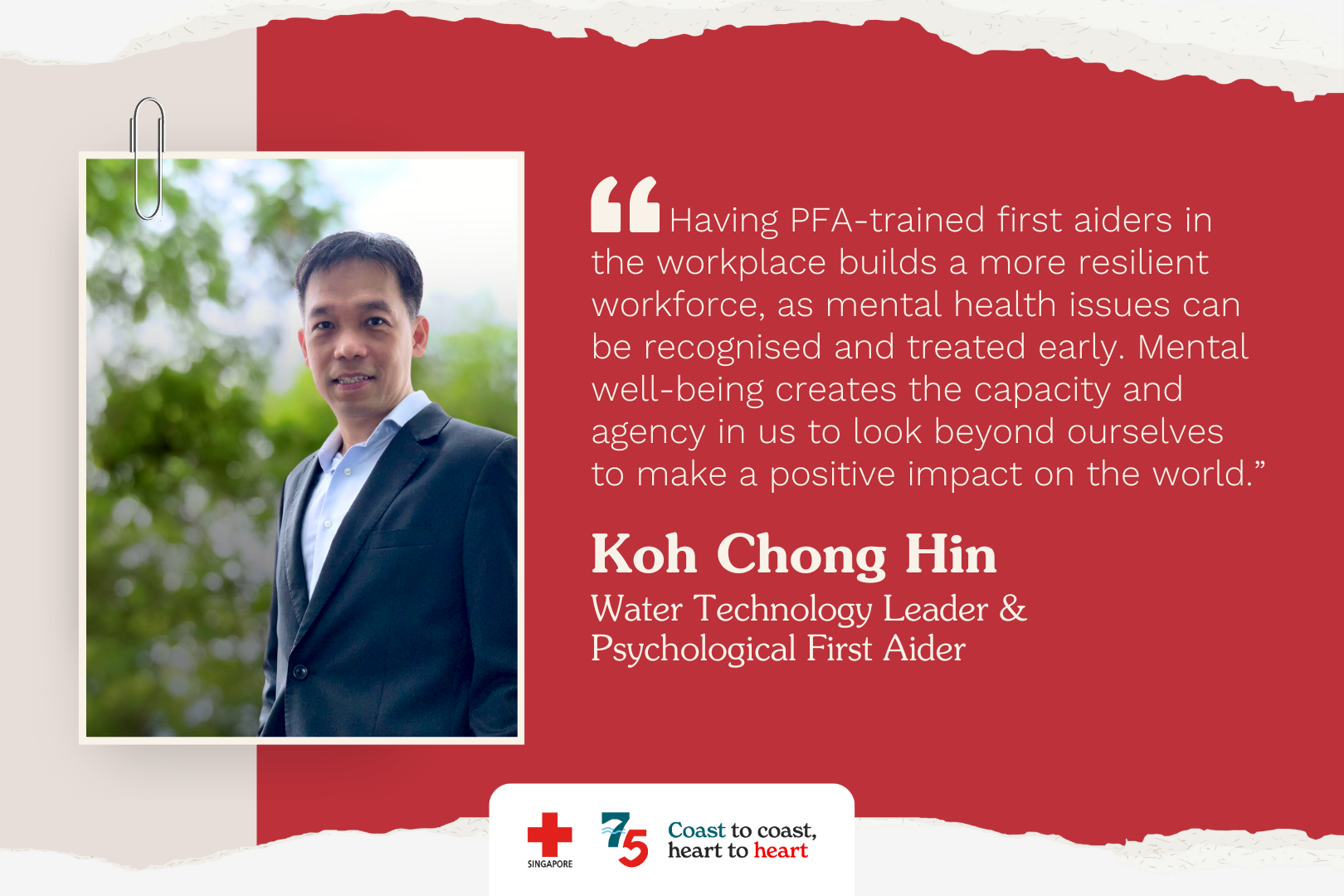
Koh Chong Hin, a Vice President of a firm specialising in water technology, is a strong advocate for workplace mental health. He holds the firm conviction that workplace mental health plays an integral role in Corporate Sustainability, Corporate Social Responsibility, Environmental, Social and Governance (ESG) and Diversity, Equity and Inclusion (DEI).
Sustainability gained traction as a business norm in 2021 and 2022, driven by heightened awareness of the climate change crisis and the proliferation of Environmental, Social and Governance (ESG) considerations. Now, the world’s leading corporations publish sustainability reports, with many pledging to reach “net zero carbon” by 2050. Investors and consumers are keen to learn about corporate organisation's efforts in addressing climate and other ESG issues.
Yet, when asked for the definition of ‘sustainability’, employees will give a wide variety of responses. Most online references point to a definition of “sustainable development” published in 1987 by the World Commission on Environment and Development:
“Sustainable development refers to development that meets the needs of the present without compromising the ability of future generations to meet their own needs.”
A widely accepted notion is that it is imperative to balance economic, social and environmental sustainability factors equitably to achieve true sustainability.
To ensure economic sustainability, businesses or governments have to efficiently and responsibly leverage resources to consistently produce an operational profit to sustain their activities. Social sustainability ensures that the social well-being of a country, organisation or community can be maintained while environmental sustainability ensures that we are consuming our natural resources at a sustainable rate.
For the uninitiated, Workplace Mental Health can seem as nebulous as sustainability, and workplace conversations around mental health are rare. Nonetheless, this is rapidly changing as well, with mental health and wellness gaining traction since the COVID-19 pandemic.
Is there a link between the two?
Yes, according to the World Health Organisation (WHO), that states “there can be no health or sustainable development without mental health.”
In general, any heightened and prolonged periods of mental distress can lead to declining mental health. War, conflict and natural disasters often result in humanitarian crises that can trigger Post-Traumatic Stress Disorder (PTSD). In the longer term, poverty and malnutrition may adversely affect brain function and development, leading to mental illness. There is even a form of low-grade distress caused by constant exposure to visceral and distressing images of climate change effects in our newsfeeds — climate anxiety — that can be harmful to mental well-being.
At the workplace, poor working environments, including overwork, inequality, race or gender discrimination, unsafe work practices and constant job insecurity, can put workers’ mental health at risk. According to the WHO, an estimated 12 billion working days are lost every year to depression and anxiety, costing $1 trillion per year in lost productivity.
Despite these facts, corporations still shy away from labelling workplace mental health issues. Corporations tackle the issue indirectly through outsourcing EAP (Employee Assistance Programme) to third parties and implementing Diversity, Equity and Inclusion (DEI) initiatives interwoven into the tapestry of the sustainability agenda. These can include non-discrimination policies, flexible working hours, fair wage implementation, and internal support networks. While these efforts are laudable, most of these measures are predominantly Herzberg’s hygiene factors, which do not venture far to protect and promote mental health at work. Conversely, they may continue to create barriers to the introduction of more direct mental health interventions such as Psychological First Aid (PFA) in the workplace.
PFA is depicted as a “humane, supportive response to a fellow human being who is suffering and may need support.”
The response can include providing practical care and support which does not intrude, listening to people without judgment, providing comfort, connecting people to the right information and support sources, and protecting people from further harm. It is not confined to the domain of professional counsellors - the principles and processes can be embraced by anyone with even minimal training. Having PFA-trained first aiders in the workplace builds a more resilient workforce, as mental health issues can be recognised and treated early.
The recent development of the tiered care model for mental healthcare recognises that levels of care are imperative based on the complexity and severity of the individual’s needs.
Mental health promotion, self-help, and peer support lie at Tier 1. This is where PFA can offer the most impact, before the stage where professional counselling and psychologists are needed in a situation; where suitable measures and programmes in place can effectively mitigate the need for more expensive and intensive intervention down the line. PFA at Tier 1 is a near-perfect alignment of needs and solutions that can appreciatively enhance the mental health resilience of employees and the community at large.
Circling back to the original or common definition of sustainability — about meeting the needs of the present without compromising the ability of future generations to meet their own needs — it becomes imperative to ensure good mental health both for ourselves and for others. Mental well-being creates the capacity and agency in us to look beyond ourselves to make a positive impact on the world.
By Koh Chong Hin
Copyedited by Stella Lim, Marketing and Communications, and Carmen Wong, Centre for Psychosocial Support, Singapore Red Cross Academy
|
Inspired? Learn Psychological First Aid at the Singapore Red Cross Academy. |

